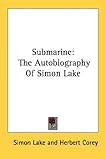U.S. Navy Lieutenant Stephen Decatur and his men escape after a daring raid against Barbary pirates.
In 1804, U.S. Lieutenant Stephen Decatur received orders that would make him a hero in the eyes of his countrymen and ultimately the youngest captain in the U. S. Navy's history.
The newly formed United States dispatched a U.S. Navy squadron to the Barbary Coast of North Africa to prevent U. S. merchant sailors from being taken captive by the Barbary pirates.
As I've recounted before, the pirates of North African for centuries raided European shores and captured ships, taking thousands of Christians captives for the North African slave market. The European powers, including the Muslim Ottoman Empire, tolerated the raids and often supported the Barbary pirates as a surrogate navy against rival nations.
Ships of the U. S. squadron pursued the Barbary galleys wherever they found them. Unfortunately, in one of those chases, the USS Philadelphia ran aground on on uncharted Kaliusa reef about five miles east of Tripoli. Quickly surrounded by gunboats from Tripoli and under bombardment from the gunboats and shore batteries, Captain William Bainbridge after several hours of trying to free the Philadelphia in the face of a falling tide surrendered his ship and men to the pirates. The pirates later re-floated the Philadelphia and took the ship to Tripoli. Bainbridge and his men were enslaved.
Fearing that the frigate Philadelphia would be a dangerous addition the pirate ships, both as a warship and model for Barbary frigates, Commodore Edward Preble ordered Lieutenant Stephen Decatur to enter Tripoli's harbor and destroy the Philadelphia.
The ship they used was a French ketch built for Napoleon's invasion of Egypt. It was later sold to Tripoli and renamed the Mastico.
The American squadron captured the vessel and seized it after learning from an eyewitness that the Mastico was one of vessels that had captured the Philadelphia. Commodore Preble ordered the ship now renamed the Intrepid to make the attack since it was a vessel familiar to the Barbary pirates.
Disguised as Maltese traders, Decatur and his detachment of nine Marines and 65 sailors aboard Intrepid on February 16, 1804, were able to enter the harbor without exciting suspicion. Using a ruse that their ship had lost its anchors during a storm, they asked permission to tie up to the Philadelphia.
The plan almost went bad when someone aboard the Philadelphia noticed that the Intrepid still had its anchors. Decatur and his men then boarded the Philadelphia, captured or killed all but two of its enemy crew without firing a shot, and then set it afire.
Decatur stayed aboard until he was sure that the fire could not be extinguished. By now shore batteries were firing on the Intrepid as Decatur and his men tried to escape. The Philadelphia's guns began to cook off and the frigate's gunfire into the town may have helped suppress the shore batteries. When the flames reached the powder magazine, the Philadelphia blew up. Lieutenant Decatur and his men were able to get safely way without a single American raider killed.















No comments:
Post a Comment